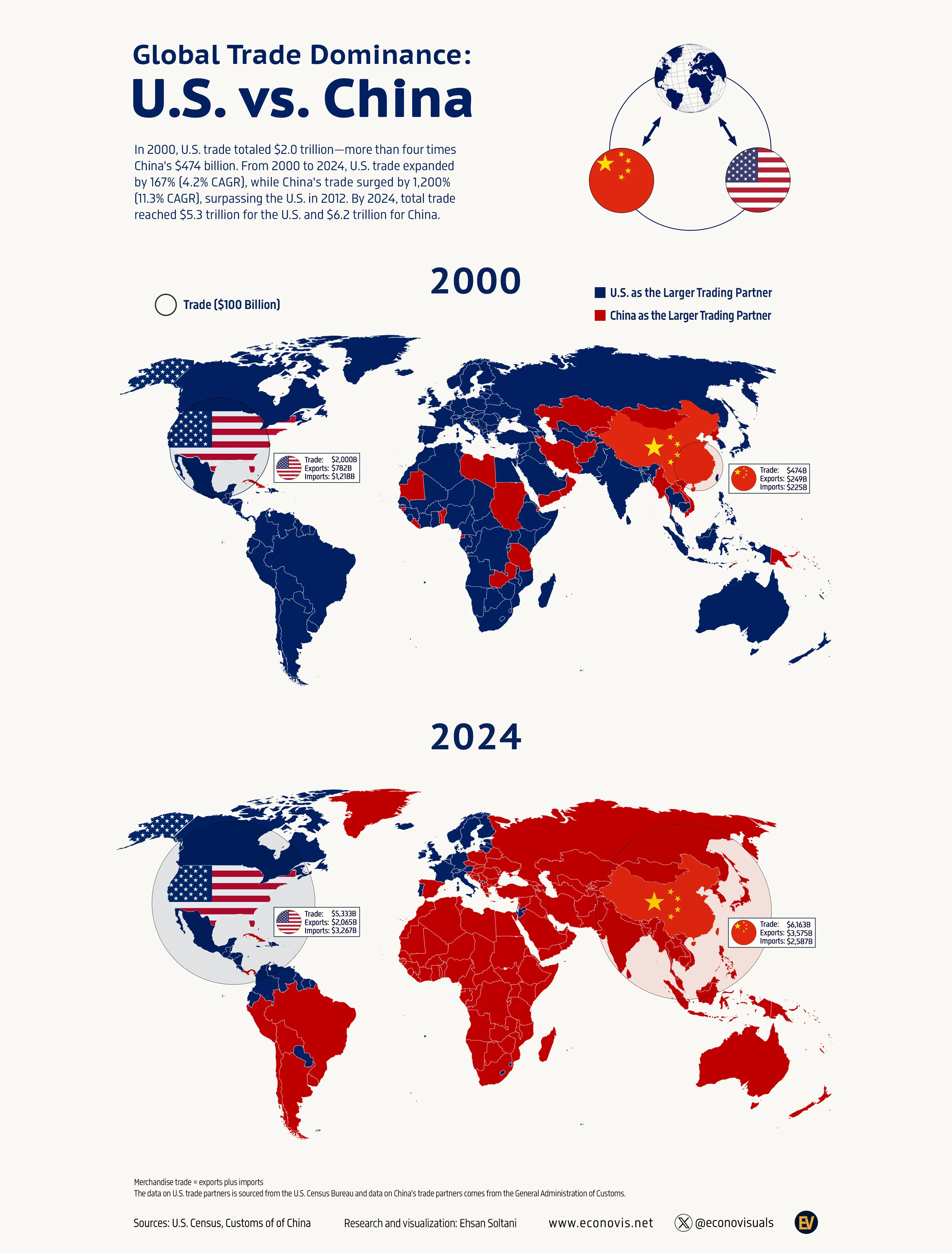 ..
..Trip To China
I spent 3 months in China. Here are my thoughts and what can help if it’s your first time there..

Everyday life
Life here feels way easier. Paying, ordering, getting around—everything’s smooth and efficient. Technology is more advanced and more integrated. The quality of service is on another level. Workers are more involved and friendly, which makes daily life way more pleasant. You can find any type of services, like someone waiting for you at a restaurant, sending an item for you.. You can received products in 20 min. Cities are a bit less walkable, some big ones are massive, and it can feel overwhelming at times. The food is so fxcking great, super diverse, and cheap. Tourism is also built mainly for Chinese people, which makes it fascinating to experience from the outside. They build so much infrastructure for Chinese tourism—sometimes it can be weird because you find empty villages, shopping malls, hotels…
People don’t really talk politics unless they’re very close. What stands out most is how safe it feels. You can leave your bag in public and it’ll still be there, maybe not in nightclubs tho. As a girl, being able to walk at night without fear is priceless. The worst thing you can experience at a party is being too drunk. There are no drugs. I haven’t seen homeless people either. Streets are clean.
China really feels like a high-trust society. People respect spaces, rules, and each other in a way that’s hard to explain if you haven’t lived it. Also, I feel that China is way more advances than the US, i’ll not talk about EU..

If you want to travel to China
Great for you if you want to lock in and work on a project for a while. You’ll need to set up WeChat and Alipay with your credit card—they’re all-in-one apps that let you pay, order a taxi (Didi), and more. If you are already comfortable with this, you should try Meituan, its an app with coupons. eg. for instead of paying your coffee $2, you will only pay $0.5 You can book flights, hotels, and trains on Trip.com (a Chinese platform, English interface, usually cheaper).
It’s best to start in the south (Shenzhen, HK, Guangzhou, Guilin); people are more open-minded and you can find foreigners. Book a room in a hostel so you can meet other foreigners and get adapted before going fully solo. You don’t need to plan everything in advance, just go with the flow, it’s easy to book everything here. A (near) real-time translation app can be super helpful if you don’t speak Mandarin—most people here don’t speak English. Make sure to set up a VPN on your phone and laptop before coming; otherwise, you won’t be able to access most Western apps and websites.
If you have any questions or need tips, feel free to reply to my post on twitter or email me.
Some discussions I had here
I talked with some Chinese people. Many of them see the West as collapsing, partly because of how critical people are toward their own governments, and also because of the rise of social movements like wokism and anti-wokism. Most of them are happy with the government. One of them told me it’s actually disturbing not to have access to local news or faits divers, since those things are often hidden from the public.
I think that’s a good thing in some cases. It helps prevent the spread of fear, social panic and even the propagation of certain crimes. Not everyone needs to know everything. Maybe transparency isn’t always the highest good. Sometimes, stability and peace of mind matter more. I’m not saying censorship is ideal. But maybe our obsession with absolute transparency isn’t perfect either. The foreigners I’ve met here tend to fall into two extremes: they’re either fully chinese-pilled or extremely critical, judging the culture without really trying to understand it. It’s easier when you’re a foreigner to have a good impression of china, i might never understand what he mean to live here.
![]()
Philosophical ground
I’ve been thinking about the philosophical roots behind this contrast (the way we think comes from philosophy, fyi). In the West, our worldview is mostly built on the same philosophers and core ideas.
In Asia, the foundation is entirely different — shaped by traditions like Buddhism, Confucianism, and Taoism. They have a fundamentally different way of thinking — one that doesn’t follow the same logic or values we’re used to. Western though, especially since the Enlightenment, places the individual at the center. Thinkers like Descartes and Kant emphasized autonomy, reason, and the power of critique as foundations for progress. Later, Hegel formalized this with his dialectic: thesis, antithesis, synthesis, where contradiction drives evolution. Even existentialists like Sartre or Nietzsche, in very different ways, reinforced the idea that self-affirmation is born through resistance.
Here, the mindset shaped by Confucianism, Daoism, and Buddhism feels fundamentally different. Rather than a clash of opposing forces, there’s a deep emphasis on harmony, on adapting instead of breaking away. Confucianism, for example, sees society as an intricate web of relationships, where fulfillment comes from understanding and embracing one’s role. It values duty, respect for hierarchy and tradition, not to erase individuality, but to give it structure and purpose. Daoism takes another path, but reaches a similar conclusion: the world flows best when we stop trying to force it. That’s not to say critique or resistance are absent. Change happens here too, but it’s often subtler, more gradual, less tied to confrontation. Where Western thought sees conflict as the engine of progress, Eastern traditions lean toward balance, adaptation, and quiet transformation.
30 Days
I arrived in China just as the country quietly opened its doors (thirty days visa-free) for select nationalities. At first glance, it appears to be a welcoming gesture, a soft diplomatic smile, but beneath the surface lies strategic intent. This temporary openness isn’t a shift in ideology; the Chinese Communist Party traditionally values strict border controls, viewing foreign influence primarily as a potential source of instability. Rather, this policy serves clear economic and geopolitical functions: it attracts tourism revenue and reinforces trade relations with economically strategic nations. For instance, China’s visa-free policies closely align with its Belt and Road Initiative. It’s part of a broader effort to expand into as many international markets as possible, and win the global technocapitalist race.

This figure is underrated. It shows just how far China has come in flipping global trade dynamics in its favor. I like this one too. Countries rich in key resources (like cobalt from the DRC or copper from Chile) often benefit from smoother visa processes and diplomatic perks. Same, manufacturing hubs like Vietnam or Malaysia get targeted outreach through eased travel policies. Also, we’ve seen public figures openly praising China, and even rewarded by the authorities. It’s not random. It feels like the beginning of a bigger wave of soft power. I’m curious to see how far it goes, how much it can reshape global perceptions and what that means for foreign relations in the long run. ngl, this paragraph might not be super relevant, its just me reading on the internet and personal impressions.
I need someone to mansplain economics and politics to me for an hour a week.
Anyway, here’s your sign to book that flight.
